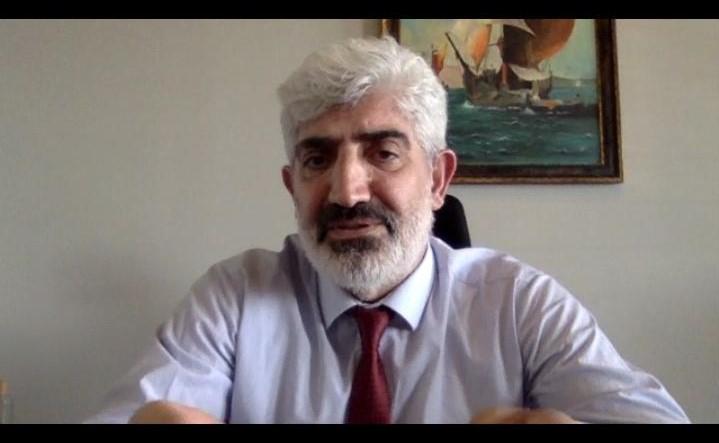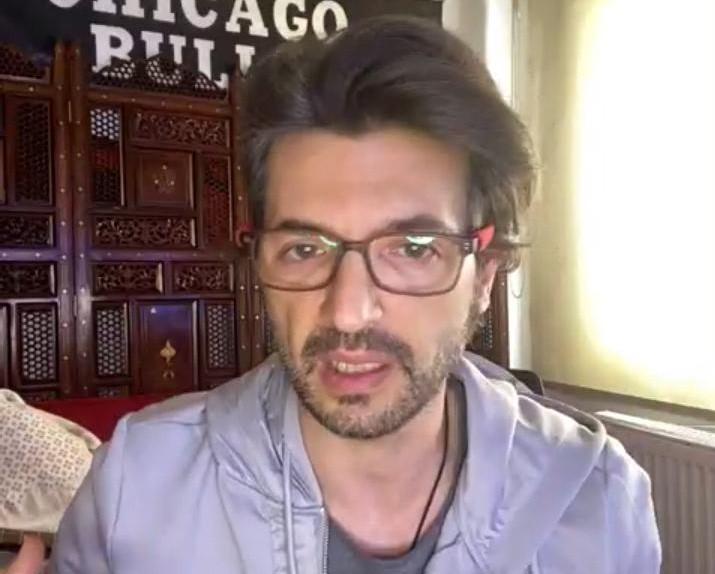Psychiatrist Onur Noyan: “The youth expects to be popular”
The subjects of desire to be admired, body image and media addiction were discussed within the scope of the "Solution-Oriented Approach: Media, Women and Psychology" event organized by Üsküdar University Social Sciences Institute. One of the speakers of the program, Assoc. Prof. Onur Noyan stated that there are changes in the brain volumes and biology of people with social media and internet addiction, and added: “There is an expectation to receive more likes and popularity on social media.”.

Those who participated in the program moderated by Assoc. Prof. Aylin Tutgun Ünal from Üsküdar University, Department of New Media and Journalism are as follows: Psychiatrist Assoc. Prof. Onur Noyan from NP Brain Hospital, Asst. Prof. Cem Tutar from Üsküdar University, writer and researcher İhsan Aktaş and medical aesthetic specialist Hakan Kahraman.

“On social media, one can construct one's body as part of the show”
Referring to the sociological dimensions of media addiction, Cem Tutar stated: “We, mediate the social reality through the media in the postmodern culture, in the contemporary cultures we live in. We learn not by doing things in the culture, but rather by confronting the field of the media on technological tools. Through this, we perceive the cultural space. Subjects such as body and self-perception are also included in this field. Individuals can construct their body as part of the show on Instagram and similar programs. In this society we live in, consumer society values, body culture, self-indulgence, narcissism and it is circulated by the advertising, fashion and pop culture industries to make this system work. All of these events affect both Western and non-Western societies simultaneously.”.

“Outside perspectives can change a person's sense of self”
İhsan Aktaş made remarks on the desire to be liked and body perception and said: “For the last 10 years, social media has been more on our agenda. We have commented on many professions on social media. A presentation style or a design based on visuality emerged, and social media became the cherry on top of this. After all, people live and see each other in everyday life. The desire to be liked is something that starts from childhood. When the child first realizes themselves, the child probably notices their body before self. Over time, these outside perspectives can change one's own sense of self. A person's self is something that is formed both by the opinions that they form about themselves and from the point of view from the outside. I read an article about 20 years ago, it was very interesting to me. For example, in Western societies, it was said that the culture, knowledge and experience of the person is more valuable while in Eastern societies, visuality and show are at the forefront, from a company presentation to getting into a luxury car or to the position of the boss in a meeting.”.

“People's happiness is at the forefront in aesthetic procedures”
Touching upon the aesthetic concern of the desire to be liked, Medical Specialist Hakan Kahraman said: “In human nature, there is always a desire to be liked. For example, we each take a photo and share our favorite photo of ourselves. If I am happy when I look at myself in the mirror and this happiness does not put my health at risk, no one has the right to say anything. The real problem begins when we begin to see our ego as the superiority that distinguishes ourselves from others. I definitely want to target the happiness of the person in all aesthetic procedures. We act accordingly how happy they are.”.
“There is an expectation of being popular with young people”
Touching upon the psychological dimensions of the desire to be liked, Assoc. Prof. Onur Noyan said:
“The loss of control over the time spent on social media is a huge sign. It was observed that brain volume changes in studies conducted with individuals with social media and internet addiction. Along with these, we can say that there are very serious structural biological changes. Young people are the segment where getting likes on social media has become more popular over the years. When we look at young people, everyone has an expectation of being popular quickly. When people opened a new shop, even when they went to a new place, they started to think that the more likes they get, the more they will be liked. This situation has started to put people into an expectation that ‘I will like others so that they will like me.’. This perception of popularism established in social media is a very fragile popularity, not a realistic popularity. It is one of the ways that the person chooses because they want to feel better at that moment and want to increase their self-confidence.”
Üsküdar News Agency (ÜNA)